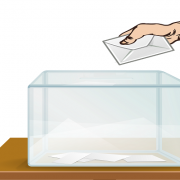Serbia’s Choices after Russia’s attack on Ukraine
Serbia more than any other nation in Southeast Europe has pursued a policy of neutrality. In other words, seeking to develop relations with the West (EU/US), Russia, China and others over more than two decades.
Russia’s invasion of Ukraine on February 24 underlines the limits of that approach. When this is all over, Serbia will have been forced to make a choice. Between now and then, the country faces many challenges.
What of Serbia’s political strategy?
In the campaign for the April 3 presidential and parliamentary elections handily won by incumbent Aleksandar Vučić and his Serbian Progressive Party (SNS), opposition parties largely held pro-Russian stances. Any fears of a backlash for not supporting Russia only underline the broad support for Moscow in the electorate. Serbia did vote in favour of a UN Resolution condemning Russia’s invasion of Ukraine. Serbia voted against Russia’s invasion at the UN because she supports the concept of territorial integrity of nations, in this case Ukraine’s. In this way Serbia has also reiterated her stance that Kosovo is Serbian. A negotiated peace settlement in Ukraine’s favour will likely see Russia’s influence in Southeast Europe diminish, while a Russian victory (or agreement with Kyiv) risks formal changes to Ukraine’s borders in which case Kosovo is no longer a unique case. This is far from an ideal situation for Serbia to be in.
Not aligned with the EU
The European Union made clear it is not happy with Belgrade for not implementing sanctions on Moscow. Indeed, Belgrade cannot match US/EU rhetoric unequivocally calling Russia’s actions in Ukraine aggression. On many levels, Belgrade is not aligned with Brussels on Russia policy. Although EU officials did not comment ahead of elections, Serbia’s EU timetable has slipped. Companies such as Air Serbia are coming under increasing pressure for doing business with Russia while Ukraine burns. Since the beginning of the war, over 300 Russian corporate entities have been registered in Serbia. Surely to attempt to evade sanctions. All of this leaves a bad taste in the mouth – the impression that Belgrade stresses EU affiliations when it is in its interests but avoids bearing the costs involved in developing any genuine relationship.
Serbia’s oil industry is dominated by Russian capital. Over time, trade links will be more difficult to maintain especially if Serbia wishes to pursue its EU ambitions. The Adriatic oil pipeline JANAF, announced in late March it will block oil supplies to Serbia’s NIS oil company (56.2% owned by Gazprom Neft) and the Petrohemija petrochemicals plant from mid-May in line with EU sanctions. They namely encompass bans on all transactions with companies owned by the Russian state. Talk of nationalising/buying out Gazprom Neft’s stake in NIS to avoid the ban is politically challenging. It depends on what president Putin needs at this moment – the loss of energy assets in a politically aligned European nation may be less palatable than any money received for an asset sale.
The Russia factor
The first major foreign player Serbia has to contend with is Russia. Since NATO’s Kosovo intervention in the late 1990’s, Belgrade’s regional policy has focussed on disputing Kosovo’s independence thus opposing the Western order in the region. This approach has stalled Bosnia Herzegovina’s and Kosovo’s NATO and EU accession plans and slowed Montenegro’s EU accession process. Serbia has willingly paid a high price for this policy, not only the one extracted by Moscow for its support.
Namely, up until the assassination of Prime Minister Zoran Đinđić, on March 12, 2003 all the talk in policy circles was of Croatia and Serbia joining the EU together, something which has been forgotten in the meantime. By extension, with the two largest actors in the region opting for the EU, the thinking at the time was that the remaining smaller countries of the region would also join.
Today, Croatia has been an EU member state for almost a decade and is on the cusp of adopting the euro, while Serbia remains a long way from EU accession. Not implementing sanctions on Russia has pushed the EU accession timeline even further away. The successful Ukrainian resistance to Russia’s initial onslaught and the largely united approach of the West have increased the cost of Serbia’s regional policy. Quite simply, Serbia cannot count on Russia’s support without meaningfully worsening relations with the EU and US.
No quick fix
Equally, anyone expecting Belgrade to quickly pivot its foreign policy unequivocally towards Brussels and Washington quickly is too optimistic. Support for Russia in Serbia is extensive, decades long, runs deep and is based on numerous factors. Three overtly pro-Russian parties/lists entered parliament in the weekend parliamentary election. Having spent almost three decades building economic and political ties with Moscow, it will be extremely difficult and costly for Belgrade to abandon Russia. It will take time for politicians in Serbia to prepare the ground for any change in policy if indeed there is any will to change it in the first place which is probably questionable.
China’s approach is another risk for Belgrade
Deepening economic and political relations between Belgrade and Beijing over the past decade mean Serbia will also have to factor in China’s policy in making its choice. If for no other reason than to occupy the US with Russia, China will remain on Moscow’s side as the conflict in Ukraine rages. Yet, as Beijing has demonstrated since February 24, it has ample scope and reason to mask its true intentions. China needs access to Western markets if it wants exports to continue contributing to economic growth. The country is also reliant on the existing global trade rules to secure adequate quantities of energy, food, and intermediate goods. In other words, Beijing is more vulnerable to US-led threats of retaliation than appears at first glance.
And as the differences between the West and Russia grow over time, China’s scope for balancing will narrow. Should western pressure on China result in less support for Russia, Serbia’s political position will weaken further.
Turkey’s role cannot be underestimated
Then, there is Turkey, which as a neighbour of Russia’s seeks to present a neutral approach, even though its arming of Ukraine with Bayraktar drones demonstrates a desire to at least try and achieve some sort of balance of power between Russia and Ukraine in the context of the broader Black Sea region. Turkey is also positioning itself as a mediator in the conflict. Ankara seeks to make the most of the situation in the context of its foreign policy goals. That automatically means that the resolution of outstanding constitutional and electoral issues in Bosnia Herzegovina as well as the destabilising effect of the Republika Srpska government, under Milorad Dodik come into play.
Ankara would be working in concert with Brussels and Washington to bolster Bosnia Herzegovina’s stability. This would finally set the country off on a path to EU and NATO membership, undermining Belgrade’s regional policy.
The EU’s Kosovo conundrum
Finally there is the European Union. There remain five (Cyprus, Greece, Romania, Slovakia and Spain) EU member states which have not recognised Kosovo’s independence. As the war in Ukraine drags on, the united approach of the US and EU continues to confound sceptics. NATO’s united response to Russia could also impact Kosovo as the current state of play favours Russia more than the US. The question is will the US focus on the five EU member states’ stances on Kosovo? And when? Resolving the Kosovo conundrum would deprive Russia of a major source of leverage over Belgrade. That would be the final proof of failure of Serbia’s regional policies over the past two decades.
Serbia must choose
Russia’s botched invasion of Ukraine and the West’s united response will require Serbia to make an unequivocal choice. The West and Russia and/or China. Over time economic relations between Serbia and Russia will suffer as sanctioned Russian companies find it increasingly difficult to trade. Serbian companies and sectors of the economy linked to Russian capital are particularly at risk. Western companies, which have written off vastly more resources in Russia, will also reassess their investments in the country. Especially as Serbia’s EU accession timetable slips. When the war ends the settlement reached will define the new balance of power in Europe. That process will not pass Serbia by.




